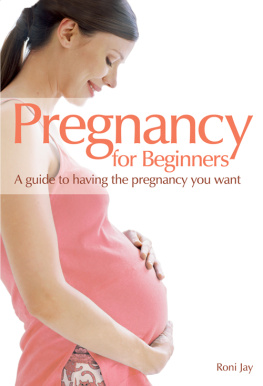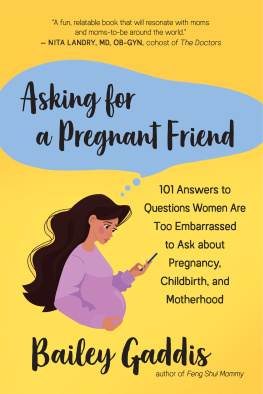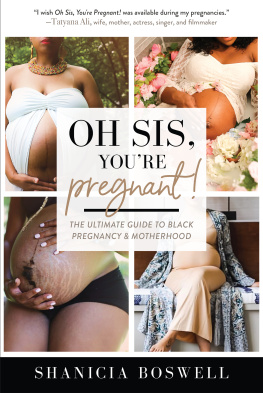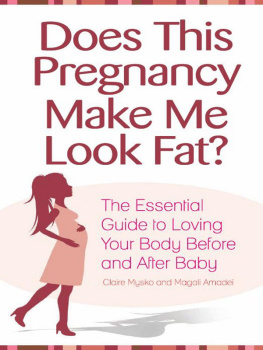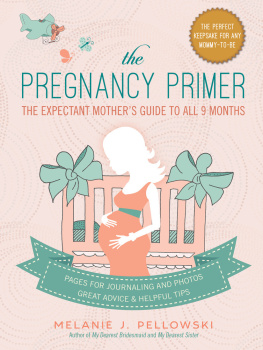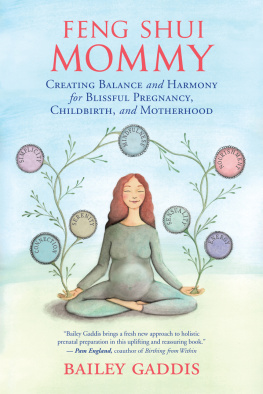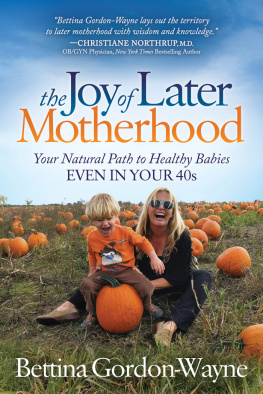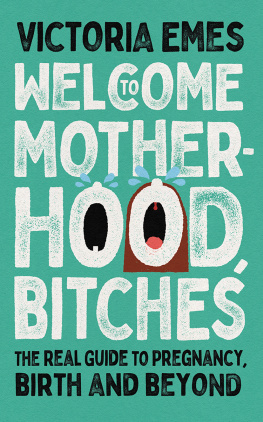Praise for
What No One Tells You
No one ever told me about this! is said by almost every woman during the often confusing experiences of pregnancy, birth, and the first year of motherhood. In this reassuring, accessible, and comprehensive guide, Drs. Sacks and Birndorf tackle common fears and questionsin particular, those that people may be embarrassed or afraid to mention. This is an indispensable resource for anyone who wants information thats both authoritative and comforting.
Gretchen Rubin, New York Times bestselling author of The Happiness Project
Becoming a mom is magical. But it can also bring concerns and stress. In their loving and practical book, Drs. Sacks and Birndorf will be your trusted guides through this wonder-filledyet sometimes bewilderingexperience.
Harvey Karp, MD, New York Times bestselling author of The Happiest Baby on the Block
This book teaches mothers how to best care for themselves psychologically. I cant think of another book like it: written by experts who are both caring and authoritative and who can prepare new mothers for this tremendous identity shift and all the emotional changes that come up along the way. I wish I had a book like this when I was going through pregnancy and new motherhood.
Christy Turlington Burns, founder & CEO of Every Mother Counts
For our mothers and the teachers, students, and patients who have mothered us along the way
I remain fascinated by where you go once you are a mother, and if you ever come back.
Rachel Cusk
Introduction
Julie had dreamed for years about becoming a mother. It took months of trying, but finally, here she was, excited, grateful, and a bit nauseated. At an early doctors appointment, she and her husband were relieved to hear that the screening results were healthy. Julie and her husband hadnt discussed whether theyd want to know the babys sex in advance, but when the doctor asked, Do you want to find out? they locked eyes and agreed: Sure, lets go for it. The doctor smiled and said, Congratulations, youre having a boy! Julies husband squeezed her hand and beamed, but she felt her heart sink. Since the baby she had always imagined had been a little girl, she felt like she was losing that dream. Whats wrong with me? she asked herself. My baby is healthy, my husband is happy, and all I can feel is disappointment that Im not having a girl? She plastered on a fake smile, but as she gathered her things to leave the exam room, all she could think was: Am I a horrible person? Will I be able to love my son? Everything was going well, but Julie was spiraling, caught up in her worst fear: being a bad mom.
Julie wasnt a bad mom, of course. She loved her son, and once he was born, she would say that she couldnt imagine any other baby than him. But this wasnt the last time in her pregnancy or motherhood that she would be troubled by mixed feelingsabout her son, about herself, about her choice to become a mother. And for Julie, as for many mothers, these ambivalent feelings sent up red flags. Anything less than joy and contentment, Julie thought, must mean there was something wrong. But that couldnt be further from the truth.
The expectation that babies bring ultimate happiness is not only unrealistic, its dangerous. Our culture reinforces a story of motherhood that has left out doubt, uncertainty, and the bittersweet, and this myth has become hazardous to womens mental health. Its time to rebirth pregnancy and bring parenting down to earth.
We, the authors of this book, are reproductive psychiatrists: medical doctors who specialize in helping women navigate their emotions before, during, and after pregnancy. Because we listen to their stories every day, we know that most pregnant women and new mothers experience pressure to project an outward image of ease, when inside theyre wresting with chaotic emotions.
Even if motherhood has been a lifelong desire, once it arrives, many women find themselves feeling lost somewhere between who they were before and who they think they should be now. And because many of our patients tell us that the only place they can be honest about their contradictory feelings is in a therapists office, we know that too many women are ashamed to speak openly of these struggles for fear of being judged and labeled bad or ungrateful mothers. For most women, its this shame and silence thats the real problem, not the experiences themselves.
Many women tell us they assume that having conflicted and confusing emotions means they are developing a mental illness. Of course, there are some women who need professional intervention. But over time, weve come to see that the majority of pregnant women and new mothers experience a natural emotional flux that falls in between bliss and the blues. Nothing as important as motherhood can be purely good or badits far too complex.
Society seems to be invested in a bliss myth, the idea that joy is the primary emotion of motherhood. But every mother will have moments of ambivalence, because shes always juggling between giving and taking. Since these conflicting feelings are rarely openly discussed, many women are left feeling that these struggles are their fault.
When womens stories deviate from this bliss narrative, they may feel alarmed and bury the experience, choosing not to share the uglier moments of motherhood with family and friends, and hardly ever on social media. Their stories are pushed deep down and left untold, and so the cycle continues.
Many of our patients tell us that they havent heard sad or challenging stories about motherhood from others, so they are shocked when they have difficulty around common experiences like miscarriage, trouble breastfeeding, fighting with their families and partners, or simply feeling disappointed. A refrain that we hear again and again from our patients is: Why didnt anyone tell me it would be like this?
Sure, we all think we know the list of changes that come with pregnancyyou gain weight, your ankles swell, you have to pee all the timebut the reality is far more intense and abstract. Pregnancy is one of the most transformative events a human can go through, and dramatic changes to the body are never solely physical. Strange hormones will be coursing through your veins. Your role in your family will changeyour relationship to your partner and to your own parentsas will how society sees you. Its a challenging journey, yet guidebooks have been scarce.
Most books about pregnancy are about having a good pregnancy, in which the goal is giving birth to a healthy baby. Most advice on early motherhood focuses on how to care for the baby, this strange and vulnerable new creature youre suddenly responsible for. Of course, women need this information. But pregnancy is not only the process of giving birth to your new babyits also the process of giving birth to a new you . And that kind of labor doesnt always feel good or happen easily.
Weve all seen the Instagram or magazine images of the pregnant woman or postpartum supermom: a wise, efficient, gorgeous but modest multitasker who glows in her delivery room photo and laughs off the challenges of leaking breasts, dirty laundry, sleep training, an intrusive mother-in-law, and a grumpy, sex-starved partner. Her house is always clean, her hair is always done, and shes back in her skinny jeans just weeks after delivery.
Or maybe your image of the Perfect Mother is different. Maybe shes a savvy businesswoman juggling office and home life without breaking a sweat. Maybe shes a grounded earth mother, doing sunrise yoga and preparing organic meals for her family from scratch. Maybe she looks like your own mother. Maybe shes the exact opposite of your mother. Whoever she is, shes a perfectand thus impossibleideal. This is why the idea of the good enough mother (coined by the pediatrician and psychoanalyst Donald Winnicott) is so crucial but feels dangerous to many of usit sounds like settling. The image of the Perfect Mother looms over us, even when we know that in other areas of life, striving for perfection only sets us up to fail.
Next page

